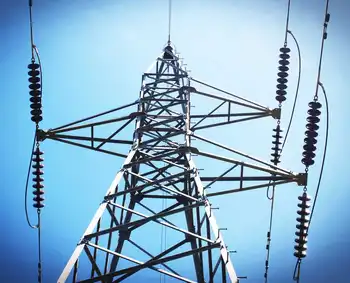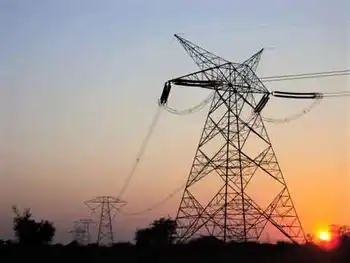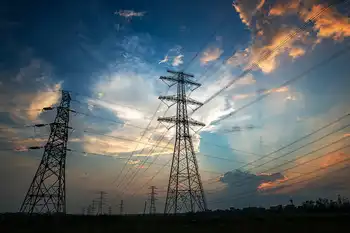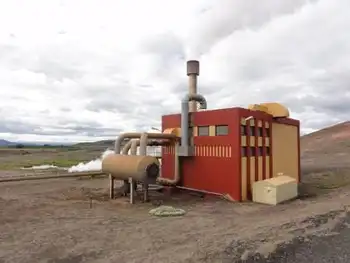Ontario to build reactors
TORONTO, ONTARIO - The provincial government will announce that Ontario is embracing more nuclear power plants.
Premier Dalton McGuinty has privately spoken of his government's plans to confidants for days, insiders say.
In an off-the-record speech recently in Ottawa to the secretive Bilderberg group, McGuinty discussed the pros and cons of more nuclear plants.
While he did not divulge the government's plans to that audience of 160 business and political leaders, the premier privately admitted the public will officially learn of the plans June 13 when his government announces its long-awaited response to the Ontario Power Authority's report on the province's energy supply mix.
Last December, the OPA, an arm's length agency, recommended in its 1,100-page report that Ontario spend up to $40 billion over the next 20 years to produce 12,400 megawatts of electricity from new or refurbished nuclear plants.
The authority said nuclear power would have to be 50 per cent of the province's energy mix through 2025.
"The government will soon announce our response to the Ontario Power Authority report," an aide to the premier said recently. "The premier repeated what he has always said publicly, that we cannot take new nuclear off the table as we prepare Ontario's long-term energy plan."
Despite claims from his office that his speech was no different from one he delivered in Niagara Falls a year ago, insiders told the Star he was unequivocal in private conversations about his support for the controversial electricity source.
Ontario is already home to many nuclear facilities. There are six nuclear units at Tiverton's Bruce plant, plus two more being refurbished; four at Darlington in Bowmanville; six at Pickering, plus two that have been mothballed, and one decommissioned Atomic Energy of Canada Ltd. reactor at Deep River.
To meet the OPA recommendations, Ontario would need about a dozen more reactors, which would take years to build.
Ever since the OPA report was made public Dec. 9, opponents of nuclear power have been attacking McGuinty for leaning toward that option.
The Sierra Club has called the nuclear option "insanity" and Greenpeace called it a leap backward at a time when alternative sources should be sought.
McGuinty's staff deliberately omitted any mention of his speech Saturday to the Bilderberg session — held at the Brookstreet Hotel in the Ottawa suburb of Kanata — from his public itinerary.
The group, named for the Dutch hotel the organization first met at in 1954, holds its sessions behind closed doors amid tight security.
In the past, Prime Minister Stephen Harper and former prime ministers Paul Martin and Jean Chrétien have addressed the organization.
Because participants in Bilderberg sessions are sworn to secrecy under threat of ex-communication from the group, politicians tend to lower their guard and speak candidly.
Insiders say McGuinty gave a "marvellous" Ontario-boosting speech interspersed with revelations about the province's need to move forward with more nuclear plants.
"He gave a stump speech on how great Ontario is and then (privately later) he said we're going to announce we're building new nukes," a source said.
Among those reportedly attending the Ottawa session were Ahmad Chalabi, former deputy prime minister of Iraq and a key proponent of the U.S.-led invasion of that country; Globe and Mail publisher Phillip Crawley; Coca-Cola chairman George A. David; Power Corp. CEO Paul Desmarais; Richard Holbrooke and Vernon Jordan, long-time top advisers to former U.S. president Bill Clinton; Henry Kissinger, former U.S. secretary of state; former New Brunswick premier Frank McKenna; Queen Beatrix of The Netherlands; New York Governor George Pataki; Iraq war architect Richard Perle; Heather Reisman, chair and CEO of Indigo Books and Music; Torstar president and CEO J. Robert S. Prichard and tycoon David Rockefeller, among many others.
It was the kind of power-broker audience the premier, who sat with Pataki, Reisman and Queen Beatrix, would want to reach when delivering a message about investing in Ontario — and massive investment will be required to pay for $40 billion in nuclear plants.
His address came one day after Energy Minister Dwight Duncan confirmed that the Liberal government was being forced to break its 2003 election promise to close all of Ontario's coal-fired generating plants by 2007. That promise was later amended to 2009.
Duncan recently said that even the 2009 date could not be achieved.
As for the nuclear option, Jack Gibbons, executive director of the Ontario Clean Air Alliance, denounced the OPA's call for more nuclear power as "1950s-style solution to meet our electricity needs in the 21st century."
NDP Leader Howard Hampton, author of a book on Ontario's electricity history, has railed against nuclear power because of environmental concerns and cost overruns.
But Progressive Conservative Leader John Tory has said Ontario needs a diverse energy supply to keep its manufacturing-reliant economy stable.
Related News
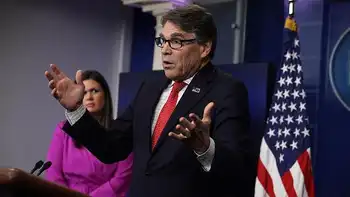
Energy groups warn Trump and Perry are rushing major change to electricity pricing
WASHINGTON - A coalition of 11 industry groups is pushing back on Energy Secretary Rick Perry's efforts to quickly implement a major change to the way electric power is priced in the United States.
The Energy Department on Friday proposed a rule that stands to bolster coal and nuclear power plants by forcing the regional markets that set electricity prices to compensate them for the reliability they provide. Perry asked the Federal Energy Regulatory Commission to consider and finalize the rule within 60 days, including a 45-day period during which stakeholders can issue comments.
On Monday, groups representing petroleum, natural gas, electric power and…

